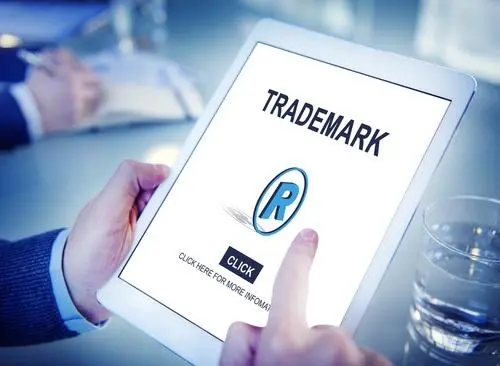What is the difference between a physical address and a mailing address?
The difference between a physical address and a mailing address is important for business owners and entrepreneurs to know. For certain business practices or paperwork, business owners will require certain types of addresses.
LZ Virtual Mail solutions
Excellent


by LegalZoom staff
Contents
Updated on: March 14, 2024 · 6min read
- What is a mailing address?
- What is a physical address?
- Physical address meaning
- Do I need a physical address for my business?
- Another type of physical address: virtual addresses
- Signing up for a virtual address
- Physical address example
- Summary
- What is a mailing address?
- What is a residential address?
If you are starting or running a business, you're probably no stranger to paperwork. From signing contracts to signing up for all kinds of services, there's a lot to juggle. You may not have anticipated asking yourself, do I need a physical address or a mailing address?
If you're like most people, you may not even be completely sure what the difference is between a mailing address and a physical address. However, the difference between a physical address and a mailing address is important for business owners and entrepreneurs to know. For certain business practices or paperwork, business owners will require certain types of addresses.

Mailing addresses differ from physical addresses in a few important ways. Knowing the difference can help you know what type of address you need for your business.
What is a mailing address?
A mailing address is an address that senders can use to send you postal mail. For many people and businesses, this is your home or office address. However, for some people or businesses, a mailing address is not their home or office address.
A common example of a mailing address is a P.O. box. A P.O. box is a mailing address but not a physical address. Using a P.O. box, senders can make sure postal mail gets to you. However, your location remains private.
What is a physical address?
A physical address, on the other hand, describes a location. If you receive postal mail at your home, your residential address is a physical address and a mailing address. However, some people or businesses maintain a physical address separate from a mailing address. While a physical address can be a mailing address, that's not always the case.
Physical address meaning
If your company operates out of a physical office, then your office is the physical address. However, if your company does not require a physical space to run, you might not have immediate access to a physical address. Fortunately, there are options.
Do I need a physical address for my business?
If you are an aspiring business owner, you probably know whether or not you need a physical office to operate your business already. For example, if you need a physical office for your business, let's say you're planning to open a brick-and-mortar boutique, you know the answer to this question upfront. If you require a physical office for your business, you don't need to worry about finding an additional physical address because your office takes care of it. Of course, you can always save time and effort from the postal mail services that come with a virtual address or mailbox.
However, for certain types of businesses, the answer to this question can be a bit murky. Remember that even if you don't need an office, you might still need a physical address. For example, if you operate a consulting business and work with clients entirely over Zoom or Google Hangouts, you don't need an office to operate your business.
However, if you set up your business as a limited liability corporation (LLC), limited partnership, or limited liability partnership, you will need to have a registered agent in the state your business is registered.
LegalZoom defines a registered agent as an “individual or entity which has been designated by the LLC to receive service of process notices, government correspondence, and compliance-related documents on behalf of the LLC."
If you don't have an office space, you will need to have a physical address for the registered agent to use. However, that doesn't mean that you need to run out and find an office to rent. For businesses that operate remotely, a registered agent used in conjunction with a virtual address can help solve this issue.
Another type of physical address: virtual addresses
Despite what it sounds like, a virtual address is a real, physical address that can accept postal mail. However, they're called virtual addresses because you don't need to be physically present to receive postal mail there.
But what does this have to do with you and your business? For entrepreneurs and small business owners, virtual addresses offer several benefits.
For LLCs, a virtual address fulfills the requirement of a physical address for your registered agent. Also, virtual addresses are a popular choice for registering a business at the state or federal level. A virtual address offers a shortcut that can save you time and money for businesses that don't need a physical building or office to operate.
Virtual addresses can also accept postal mail and packages on your behalf. This will come in handy if you need to receive postal mail for your business and don't want to share a residential address with customers or partners.
If you expect to receive postal mail related to your business often, you may consider going one step further and signing up for a virtual mailbox. A virtual mailbox comes with a virtual address and offers postal mail scanning services that allow you to access your postal mail, like email.
Virtual address services typically offer things like postal mail scanning, forwarding, or storage on demand. However, these costs can add up. If you know you will be regularly receiving postal mail, it is likely more cost-effective to sign up for a virtual mailbox than a virtual address alone.
Signing up for a virtual address
Whether you know you're going to require a physical address for a registered agent or just want to keep your residential address private, a virtual address can be a viable solution for you.
Physical address example
To choose your virtual address, you'll want to know where you plan to register your business or what type of address you want to publicize. For example, if you're looking for a premium address, you might consider signing up for an address in a major city on a street like Park Avenue. Of course, where you plan to register your business will be a determining factor as well.
Once you've made up your mind about where your virtual address should be, you can sign up for a location of your choosing.
Summary
Knowing the difference between a physical and a mailing address can help you be better prepared to make important decisions about your business. Most importantly, you want to keep in mind that you may be required to have a physical address depending on your business type, even if you don't need a storefront or office to run.
If you find yourself needing a physical address but don't want or need to invest in office space, consider a virtual address or virtual mailbox. These solutions can not only solve your immediate needs, but they'll also be flexible, so you never have to worry about what happens if you move to a new location.
What is a mailing address?
The mailing address can be linked to an office where mail is collected for all apartments or offices, or it can be the location of your P.O. Box. A mailing address is not always a physical address. Sometimes, it's a virtual address.
What is a residential address?
Your residential address is the real street address where you live. This is the address you provide to friends and family when they come to your home.
You may also like
 Trademarks
TrademarksWhy do I need to conduct a trademark search?
By knowing what other trademarks are out there, you will understand if there is room for the mark that you want to protect. It is better to find out early, so you can find a mark that will be easier to protect.
October 4, 2023 · 4min read
 Last Wills
Last WillsHow to write a will: A comprehensive guide to will writing
Writing a will is one of the most important things you can do for yourself and for your loved ones, and it can be done in just minutes. Are you ready to get started?
February 9, 2024 · 11min read
 Starting Your LLC
Starting Your LLCHow to start an LLC in 7 steps: A complete guide for 2024
It's easy to create a new LLC by filing paperwork with the state. But to set yourself up for success, you'll also need to think about your business name, finances, an operating agreement, and licenses and permits. Here's a step-by-step guide.
March 21, 2024 · 20min read